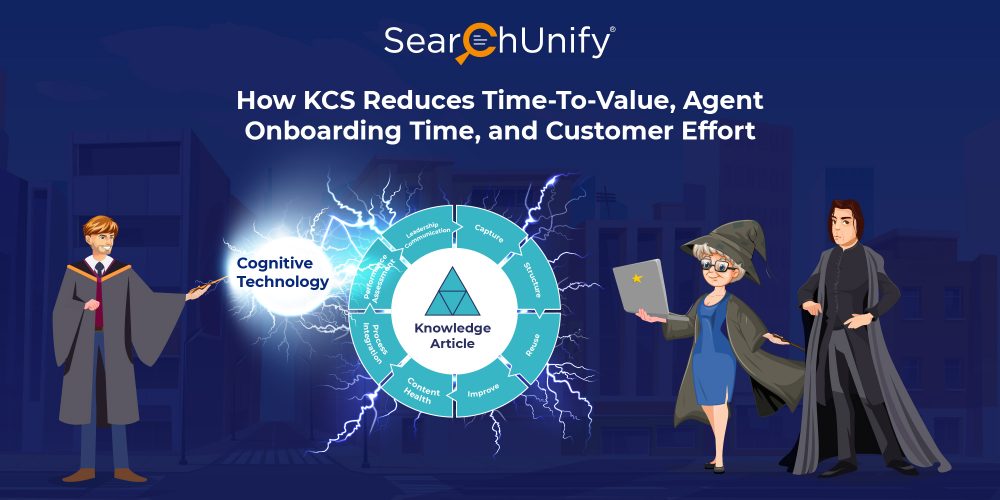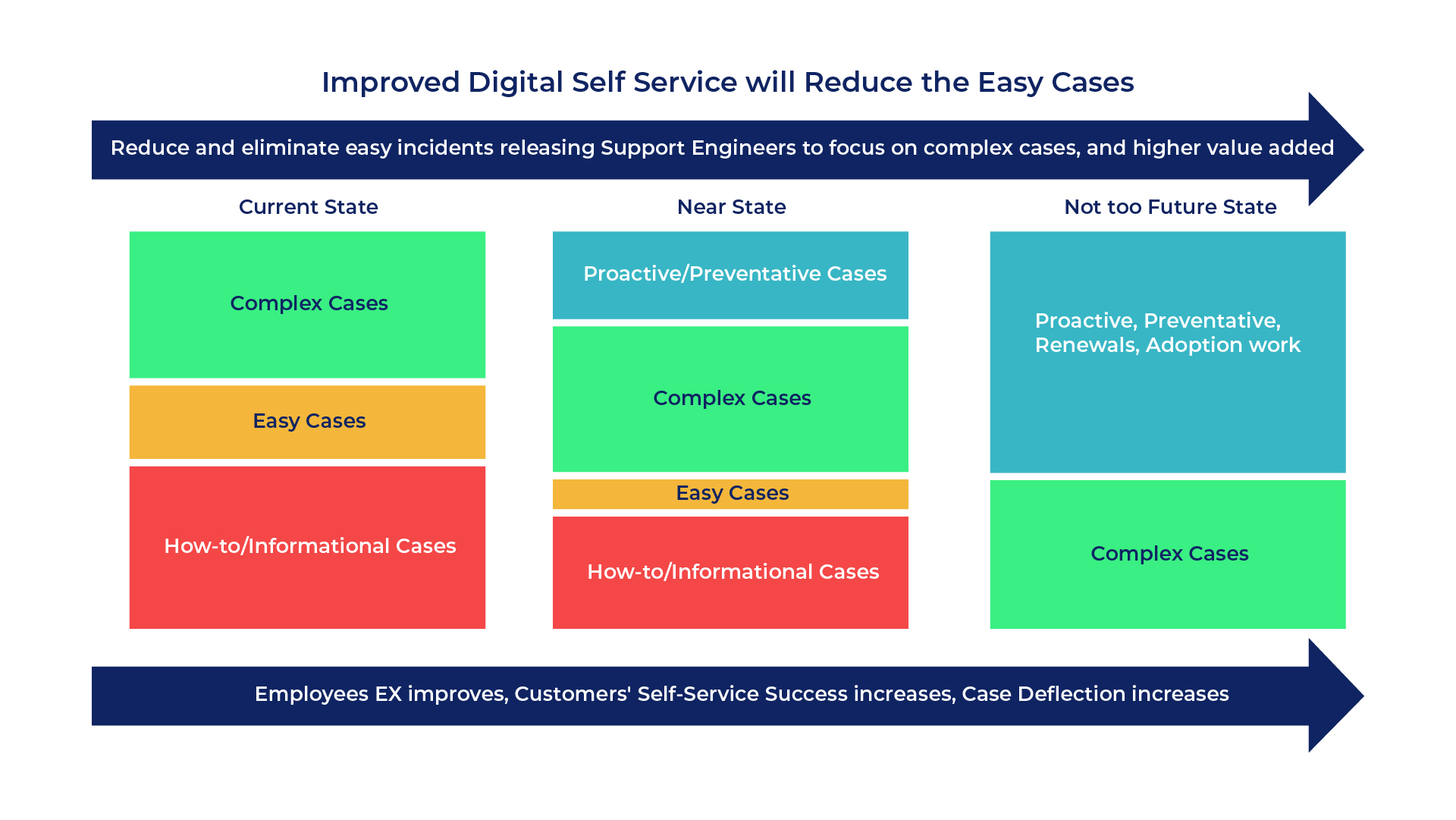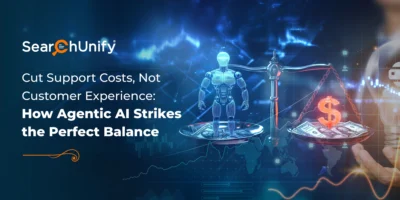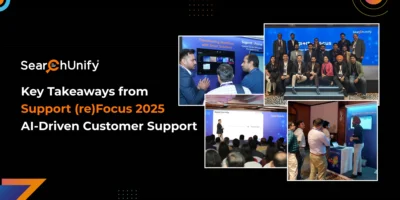
Anything that inhibits your customers from driving value from your product or service is a hurdle you need to overcome. It can be an installation, feature, configuration, or a how-to problem. The more effort and time your customers spend on resolving their issues, the more you fail in your mission of making their lives easier. This is where knowledge-centered service (KCS) comes into play.
What Is Knowledge-Centered Service (KCS)
It is a framework for collecting, structuring, reusing, and improving knowledge consistently to elevate support outcomes. It is the continuous generation of demand-driven and self-improving knowledge by many as a by-product of solving customer issues. Not only does it reduce customer time-to-value across their journeys but enables effective customer self-service.
KCS Reduces Resolution Times
Consider a service agent, Ron. He is assigned a support ticket A and wonders if the team solved a similar one earlier. He is a newly onboarded support agent. If he can see which KB articles helped resolve similar issues in the past, he can send out a relevant first response.
As customers create a ticket, they add details like the product version, issue type, description, severity, etc. If Ron can get this information along with the historical user data in CRM, his response will not only resolve an issue but also enhance CX.
But the information should be accessible to Ron within seconds, in the form of a pop-up or dialog box as the ticket is received. If he has to hop a few windows and platforms to look for it, the time taken will infuriate the customer. Ron needs to have a holistic view of the customer journey and the necessary customer details.
KCS’s Solve Loop enables you to do that. With the right technology, you can easily implement it. Before we talk more about the tech side of it, let’s look at the other benefits and use cases of KCS.
KCS Enables True Preventive Approach to Support
Consider Severus, a support leader at the same firm. He is a new-age leader commissioned with the task of transforming his support organization from Reactive → Proactive → Preventive.

Source: KCS Academy World Tour Silicon Valley, March 3, 2020
He knows that people like Ron are integral to KCS for creating content that other agents can reuse to resolve similar issues. He also strives to maintain a dynamic, up to date knowledge base that will fuel customer self-service experiences.
He faces problems in instilling the KCS culture. Agents often complain about being swamped with tickets and that developing KB articles isn’t a part of their KRA. If he adds it to their KRA, it might severely slow them down. So, how can Severus workaround that without impacting their efficiency? Also, every organization has a defined workflow. Severus doesn’t want to get into the hassle of redesigning entire workflows.
The good news is KCS helps improve organizational knowledge linkage and creation through existing workflows. By integrating your infrastructure with cognitive apps, you can power KCS Evolve Loop in the blink of an eye. This way Ron won’t have to take out extra time for writing articles. The right set of apps will proactively churn articles as he responds to customers. All Severus has to do is ensure that these articles are reviewed by Ron’s manager and published.
The same apps also quantify agent efforts through analytics reports that detail things like the number of times the created articles were shared, how they were shared (for instance email, or case comment), how many of them were attached to cases for the customer to view themselves, and how successfully they resolved the issue.
KCS Identifies and Fills Knowledge Gaps to Fuel Customer Self-Service
Current knowledge domain experts’ job role involves identifying & remediating content gaps, and ensuring that the knowledge base is operating to its full potential for customer self-service portals. Consider Minerva, a knowledge manager. Without proper insights, she can’t zero-in on knowledge gaps and work on bridging them.
KCS aligned apps provide the insights Minerva needs, such as searches with no click, searches with no result, sessions with unsuccessful searches, unique unsuccessful searches, etc. These reports can help Minerva assess the quality of the content and fill the existing gaps.
Let’s say there are 10 different articles for ‘Bluetooth in my iPhone not working’ (based on different models.) A customer logs into your self-service portal and finds a relevant piece on the second page. Now, it would make sense for Minerva to optimize the search experience for the customers’ product version/model. In simpler words, if the customer searches for another issue, the results will be displayed on the first page itself. To move towards a preventive approach, Minerva could also recommend helpful articles related to the product that other customers viewed. Cognitive apps make this possible, and that too at scale.
Tune into this On-Demand Webinar Hosted by The KCS Academy for More Details
If you want to know how different cognitive apps power KCS to reduce overall customer time-to-value and improve agent onboarding times, you should hear this webinar hosted by the KCS Academy.
In it, SearchUnify’s Brian Corcoran elucidates which cognitive apps help achieve KCS success and how. Hear the webcast to improve knowledge linkage and creation through existing organizational workflows and remediate content gaps effectively.











